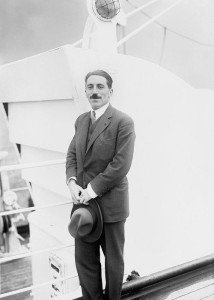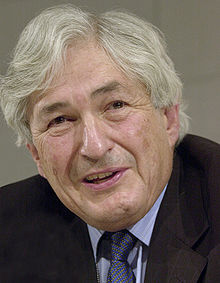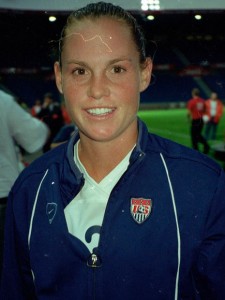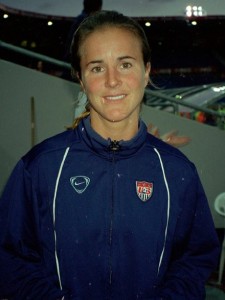OK, we know that Michael Phelps has won the most Olympic medals, with 22, and the most Olympic gold medals, with 18. But what about silver and bronze medals – who has the most of the other podium medals?
For silver medals the list of all those with 5 or more is as follows:
[table]
Silvers,Name,Gdr,Ssn,NOC,Sport
6,Aleksandr Dityatin,M,S,URS,GYM
6,Mikhail Voronin,M,S,URS,GYM
6,Shirley Babashoff,F,S,USA,SWI
5,Larysa Latynina,F,S,URS,GYM
5,Nikolay Andrianov,M,S,URS,GYM
5,Edoardo Mangiarotti,M,S,ITA,FEN
5,Raisa Smetanina,F,W,EUN/URS,CCS
5,Aleksandr Popov,M,S,EUN/RUS,SWI
5,Raisa Smetanina,F,W,URS,CCS
5,Zoltán von Halmay,M,S,HUN,SWI
5,Leisel Jones,F,S,AUS,SWI
5,Anky van Grunsven,F,S,NED,EQU
5,Yury Titov,M,S,URS,GYM
5,Katalin Kovács,F,S,HUN,CAN
5,Mariya Horokhovska,F,S,URS,GYM
5,Gustavo Marzi,M,S,ITA,FEN
5,Andrea Ehrig-Schöne-Mitscherlich,F,W,GDR,SSK
5,Dagmar Hase,F,S,GER,SWI
5,Bogdan Musiol,M,W,GDR/GER,BOB
5,Viktor Lisitsky,M,S,URS,GYM
[/table]
How about individual silver medals? Who has the most of those? Here are all those who have won 4 or more individual silver medals?
[table]
IndSilvers,Name,Gdr,Ssn,NOC,Sport
5,Larysa Latynina,F,S,URS,GYM
5,Aleksandr Dityatin,M,S,URS,GYM
5,Shirley Babashoff,F,S,USA,SWI
5,Andrea Ehrig-Schöne-Mitscherlich,F,W,GDR,SSK
4,Raisa Smetanina,F,W,EUN/URS,CCS
4,Raisa Smetanina,F,W,URS,CCS
4,Zoltán von Halmay,M,S,HUN,SWI
4,Mikhail Voronin,M,S,URS,GYM
4,Karin Enke-Kania,F,W,GDR,SSK
4,Gunda Niemann-Stirnemann-Kleemann,F,W,GER,SSK
4,Mariya Horokhovska,F,S,URS,GYM
4,Kirsty Coventry,F,S,ZIM,SWI
4,Kateřina Neumannová,F,W,CZE,CCS
4,Hryhoriy Misiutin,M,S,EUN/UKR,GYM
4,David Cal,M,S,ESP,CAN
4,Hryhoriy Misiutin,M,S,EUN,GYM
4,Frankie Fredericks,M,S,NAM,ATH
4,Ivica Kostelić,M,W,CRO,ASK
[/table]
What about those who have won silver medals but no other Olympic medal? All they won were silver medals. Somewhat surprisingly, 10 Olympians have won 4 or more silvers, but no other Olympic medals. And here they are:
[table]
Silvers,Name,Gdr,Ssn,NOC,Sport
5,Viktor Lisitsky,M,S,URS,GYM
4,Frankie Fredericks,M,S,NAM,ATH
4,Ivica Kostelić,M,W,CRO,ASK
4,Tsuyoshi Yamanaka,M,S,JPN,SWI
4,Hilkka Riihivuori-Kuntola,F,W,FIN,CCS
4,Vincenzo Pinton,M,S,ITA,FEN
4,Ian Stark,M,S,GBR,EQU
4,Frank Wiegand,M,S,GDR/GER,SWI
4,Kara Lynn Joyce,F,S,USA,SWI
4,Renzo Nostini,M,S,ITA,FEN
[/table]
What about those athletes who only won individual silver medals – no team medals, no golds, no bronzes? We got that list too – here it is:
[table]
IndSilvers,Name,Gdr,Ssn,NOC,Sport
4,Frankie Fredericks,M,S,NAM,ATH
4,Ivica Kostelić,M,W,CRO,ASK
3,Viktor Lisitsky,M,S,URS,GYM
3,Tsuyoshi Yamanaka,M,S,JPN,SWI
3,Raelene Boyle,F,S,AUS,ATH
3,Thor Henning,M,S,SWE,SWI
3,Peter-Michael Kolbe,M,S,FRG,ROW
3,Tim McKee,M,S,USA,SWI
3,Leah Poulos-Mueller,F,W,USA,SSK
3,Robert Pražák,M,S,TCH,GYM
3,Tan Liangde,M,S,CHN,DIV
3,Aleksandar Tomov,M,S,BUL,WRE
3,Ernie Webb,M,S,GBR,ATH
[/table]
OK, that’s it for silver medal trivia. What about bronze medals? Who has the most of them? Here is that list:
[table]
Bronzes,Name,Gdr,Ssn,NOC,Sport
6,Aleksey Nemov,M,S,RUS,GYM
6,Franziska van Almsick,F,S,GER,SWI
6,Heikki Savolainen,M,S,FIN,GYM
6,Merlene Ottey-Page,F,S,JAM,ATH
6,Harri Kirvesniemi,M,W,FIN,CCS
5,Natalie Coughlin,F,S,USA,SWI
5,Stefania Belmondo,F,W,ITA,CCS
5,Daniel Revenu,M,S,FRA,FEN
5,Phil Edwards,M,S,CAN,ATH
5,Antje Buschschulte,F,S,GER,SWI
5,Arie de Jong,M,S,NED,FEN
[/table]
And here is the list of those winning the most individual bronze medals:
[table]
IndBronzes,Name,Gdr,Ssn,NOC,Sport
5,Aleksey Nemov,M,S,RUS,GYM
5,Merlene Ottey-Page,F,S,JAM,ATH
4,Takashi Ono,M,S,JPN,GYM
4,Vitaly Shcherbo,M,S,BLR/EUN,GYM
4,Dmitry Sautin,M,S,EUN/RUS,DIV
4,Yelena Välbe,F,W,EUN/RUS,CCS
4,Anja Pärson,F,W,SWE,ASK
4,Roald Larsen,M,W,NOR,SSK
4,Yelena Välbe,F,W,EUN,CCS
4,William Merz,M,S,USA,GYM
4,Vitaly Shcherbo,M,S,BLR,GYM
[/table]
Finally, who has won the most bronze medals, and the most individual bronze medals, while winning no other Olympic medals? Following are those two lists:
[table]
Bronzes,Name,Gdr,Ssn,NOC,Sport
6,Harri Kirvesniemi,M,W,FIN,CCS
5,Phil Edwards,M,S,CAN,ATH
5,Antje Buschschulte,F,S,GER,SWI
5,Arie de Jong,M,S,NED,FEN
4,Vitaly Shcherbo,M,S,BLR,GYM
4,Jetze Doorman,M,S,NED,FEN
4,Robert Dover,M,S,USA,EQU
[/table]
Now for the list of the most individual bronze medals, with no team medals, no gold medals, and no silver medals.
[table]
IndBronzes,Name,Gdr,Ssn,NOC,Sport
4,Yelena Välbe,F,W,EUN/RUS,CCS
3,Angel Martino,F,S,USA,SWI
3,Stan Rowley,M,S,AUS,ATH
3,George Breen,M,S,USA,SWI
4,Vitaly Shcherbo,M,S,BLR,GYM
3,Hugues Duboscq,M,S,FRA,SWI
3,Curtis Myden,M,S,CAN,SWI
3,Amarilys Savón,F,S,CUB,JUD
3,Sheng Zetian,M,S,CHN,WRE
3,Hans van Helden,M,W,NED,SSK
3,Arnold Vanderlijde,M,S,NED,BOX
3,Gabi Zange-Schönbrunn,F,W,GDR,SSK
3,Marian Zieliński,M,S,POL,WLT
[/table]
So with these lists, and probably about $4.50, you can get a nice coffee at Starbucks.



